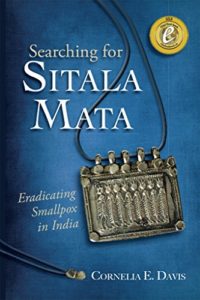Three Years in Ethiopia: How a Civil War and Epidemics Led Me to my Daughter received a 4+ star review, making it an IndieReader Approved title.
Following find an interview with author Cornelia Davis.
What is the name of the book and when was it published?
Three Years in Ethiopia: How a Civil War and Epidemics Led Me to my Daughter. Published Feb 2019
What’s the book’s first line?
Destiny. Something about the word grates and leaves me unsettled.
What’s the book about? Give us the “pitch”.
Have you ever wanted something intensely and you were willing to risk all to attain it?
Have you ever been at a crossroads and needed to decide whether to stay in a dangerous situation or go to safety?
This book is about taking calculated risks and moving outside one’s comfort zone. It speaks to relying on one’s intuition. The actual circumstances will be different for each person, but the underlying objective will be the same—to succeed! You have to fight for what you want. Persistence, determination, perseverance, and tenacity will all be needed. This is relevant for anyone in his or her individual quest. But in the end, risking is better than regretting!
While working to prevent meningitis outbreaks in Ethiopia (1990-93) during the civil war, Dr. Cornelia Davis was left as Acting Director of the WHO EPR (Emergency, Preparedness, Response) Centre when non-essential UN staff were evacuated to Nairobi. After the rebel army took over the capital Addis Ababa, her house was destroyed when retreating government soldiers trying to destabilize the new rebel government, exploded a secret underground ammunitions depot. One week later, a three-month-old infant girl was found on the steps of St. George Cathedral. Davis had been given permission to adopt by the Ethiopian government but was ordered by WHO to evacuate to Geneva. But no Ethiopian could leave the country. Davis would not leave without her daughter!
What inspired you to write the book? A particular person? An event?
I wrote this memoir to try and provide a sense of history and background to my daughter Romene, about who she was and how I found her. I think all orphans want to know their birth history. While the social worker went out several times in the neighborhood of St George cathedral in Addis Ababa, she was never able to find any trace of her birth mother or relatives. I felt that it was important to try and remember what was happening in Ethiopia at the time and to write it all down before I started to forget the details. Ethiopia has such a rich cultural history and it was imperative that she learned about it. Of course, Romene lived with me in all my assignments overseas and was able to grow up being bi-lingual in English and French. I knew that eventually she would go to live in the United States when she went to university, and as a member of a minority ethnic group she would face discrimination and racism. I wanted her to be proud of where she was born. Actually, I know more about my daughter’s ethnic background than I do of my own background as an African American born in the US!
What’s the main reason someone should really read this book?
This is a heartwarming tale of one woman’s quest to adopt as a single parent set in the backdrop of a civil war. The story speaks of the need to be persistent in what one wants. Connie is determined at all costs to not leave her daughter in a country still reeling from the chaos of war and with most government offices closed. Even in the darkest hour she never gave up hope.
If they made your book into a movie, who would you like to see play the main character?
A young Halle Berry as me!
When did you first decide to become an author?
When I studied in Florence, Italy as a sophomore in University, I knew early on that I was having some extraordinary experiences. I used to write a weekly letter home to my parents so they wouldn’t worry about me. My intuition told me that I could use those letters to help me remember my adventures, and that someday I would want to write about my adventures. I kept up this habit of writing letters and sending them home, when I went overseas to do research as a second-year medical student in Malaysia, and when I went to India to work in the smallpox eradication program.
When I was offered this fluke opportunity to work on the eradication of smallpox in India with the World Health Organization(WHO), I jumped at the chance even though it was outside my comfort zone. I knew that one day in retirement I wanted to write my memoir(s).
Is this the first book you’ve written?
No, my first book was published in 2015 – Searching for Sitala Mata, Eradicating Smallpox in India. The book won the 2017 Global Ebook Awards; Gold Medal Nonfiction, Inspirational. You can find it on Amazon.
What do you do for work when you’re not writing?
I am currently retired, but I worked as a physician right after residency, with the World Health Organization(WHO) in India on smallpox eradication. It was such a global feat to help eradicate a disease that I changed my initial focus from being a pediatrician and went back to school to get a Master’s in Public Health (MPH) at Johns Hopkins School of Public Health in Baltimore. I went on to learn to be one of those Disease Detectives (Epidemiologist) at the Centers for Disease Control and Prevention (CDC) in Atlanta. I worked for two years in the elite Epidemic Intelligence Service (EIS) and was sent out to investigate disease outbreaks in the US and overseas in Thailand, Somalia, and along the Mexican/US border. I went on to work for thirty years overseas in Africa and Asia for the WHO and USAID.
In retirement in the Lake Chapala area of Mexico near Guadalajara, I undertake the occasional medical consultancies (Cambodia, Burundi). Besides a temperate climate (5500 ft), Lakeside is known for its Writers’ colonies and the earliest English-speaking community theater in Mexico. I have been fortunate to perform in three theater productions so far.
How much time do you generally spend on your writing?
I like the mornings and generally will set aside two hours to write.
What’s the best and the hardest part of being an indie?
I like the idea of being an independent author. However, the marketing and promotional sides of self-publishing are exasperating!
Would you go traditional if a publisher came calling? If so, why?
I’m always open to new opportunities and traditional publishing has a certain caveat. But traditional publishing has changed radically over the last 15 years. I would listen intently to what they had to offer and not jump blindly at any offer.


